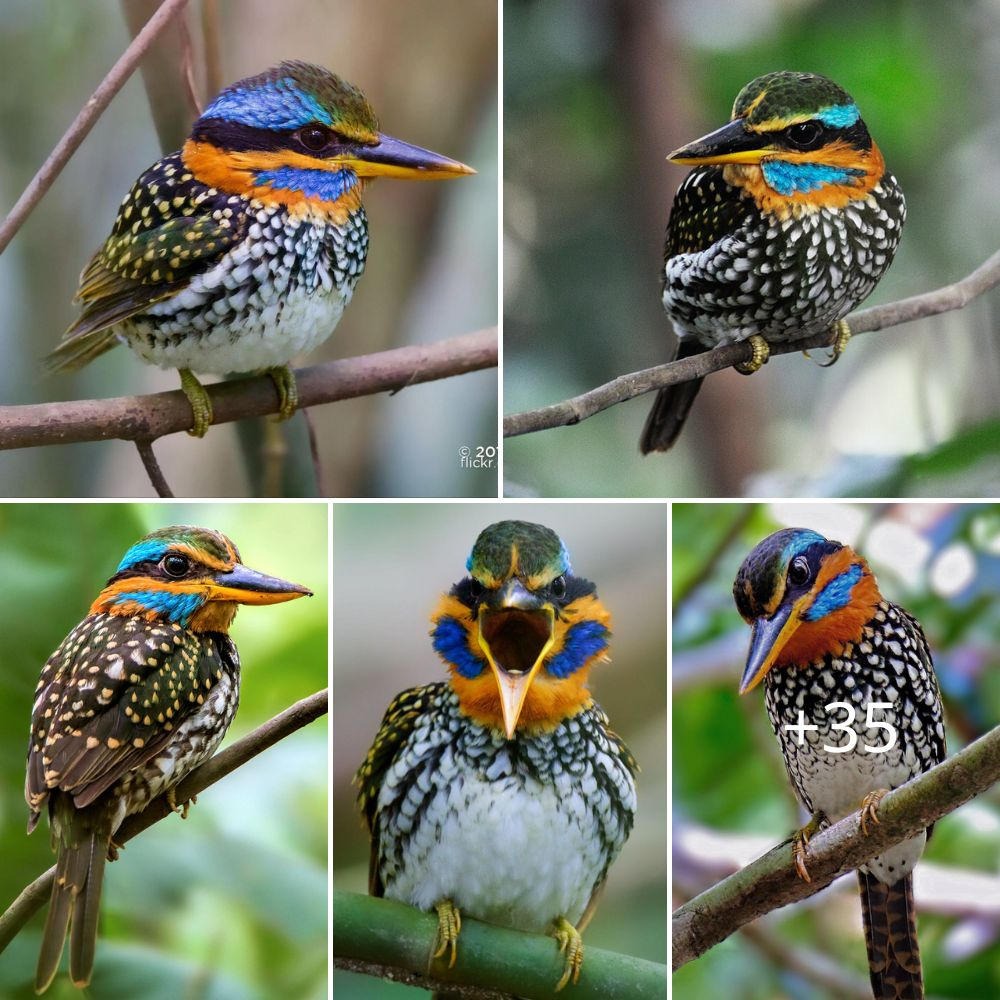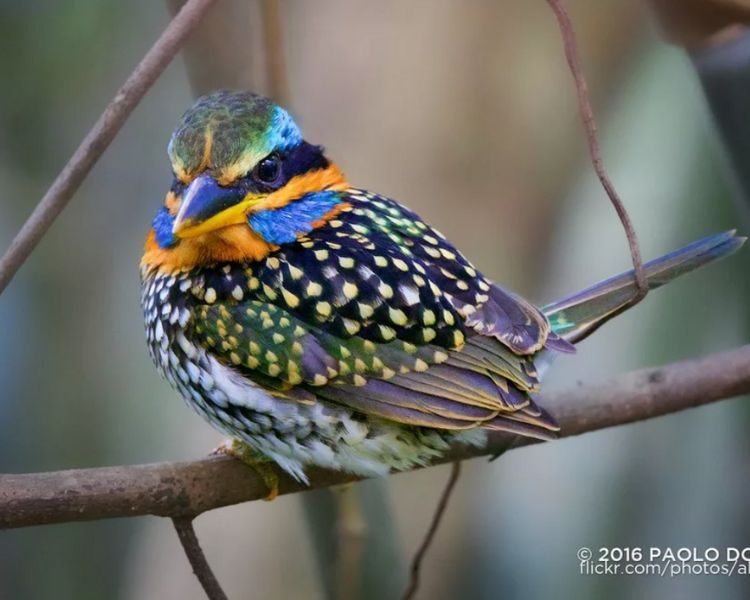
In the heart of lush forests and tranquil woodlands, a captivating avian wonder awaits – the Spotted Wood Kingfisher.
This feathered marvel, scientifically known as Actenoides lindsayi, graces our surroundings with its unparalleled beauty and endearing characteristics.
The Spotted Wood Kingfisher, with its distinctive emerald-green plumage adorned with mesmerizing spots, effortlessly blends in with the verdant foliage of its habitat. Its beak, a work of art in itself, boasts a vivid red hue that adds a touch of fiery brilliance to its appearance.
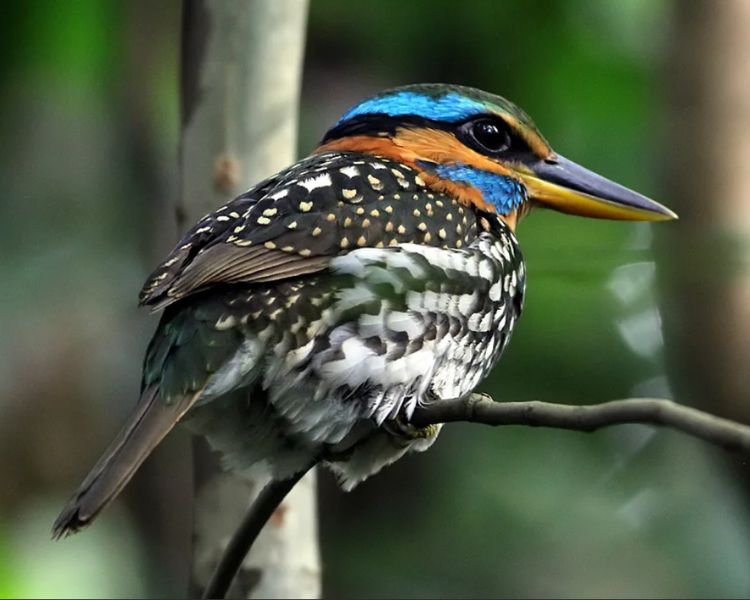
One cannot help but be entranced by the melodious symphony that emanates from this remarkable creature. Its song, a harmonious blend of trills and whistles, seems like nature’s very own lullaby, soothing the soul and evoking a sense of tranquility.
Despite its name, the Spotted Wood Kingfisher doesn’t solely rely on fish for sustenance.
Instead, it dines on a diverse diet of insects, small reptiles, and even the occasional amphibian, displaying both adaptability and resourcefulness.
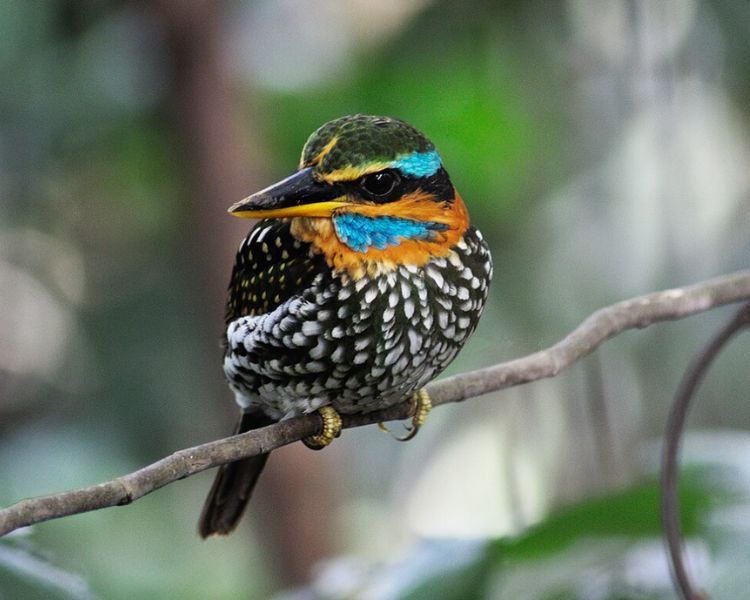
The courtship ritual of this avian gem is a sight to behold. During mating season, the male Spotted Wood Kingfisher engages in a dazzling aerial dance, showcasing his vibrant plumage and agility in a bid to win the heart of his chosen mate. It is a breathtaking display of love and devotion.
This species, often found in the tropical forests of Southeast Asia, underscores the importance of preserving these precious ecosystems.
Their survival is intrinsically linked to the health of our planet, making their presence all the more significant.
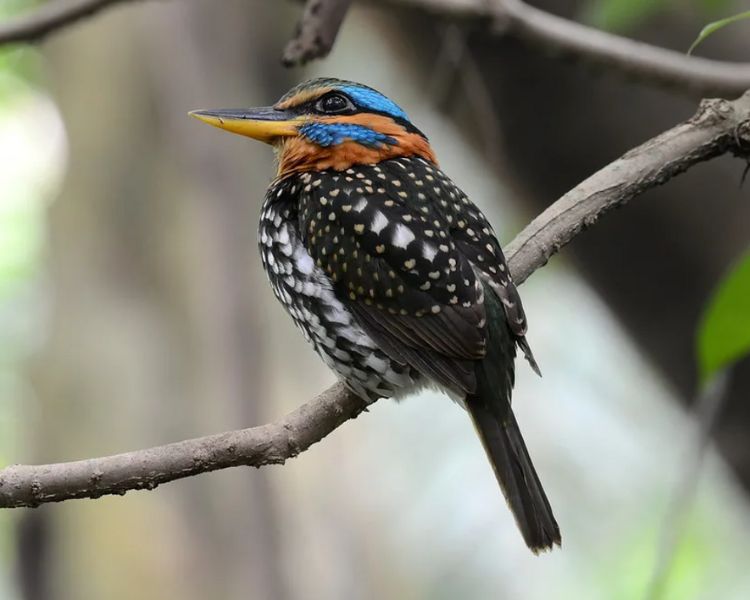
In conclusion, the Spotted Wood Kingfisher is a testament to the sheer magnificence of the natural world. Its striking appearance, enchanting song, and graceful demeanor make it a true ambassador for the beauty and wonder of our planet’s biodiversity.
Let us cherish and protect these magnificent creatures, ensuring that future generations can continue to be enchanted by their presence in our forests.
